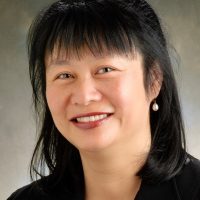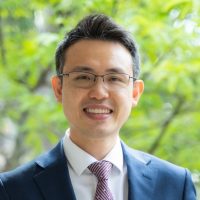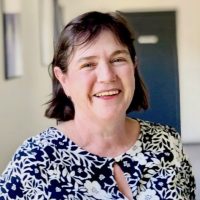Articles / Is the profession prejudiced against IMGs?

But what caught my eye and irked my ire was that the advertisement had the descriptor IMGs Welcome to Apply.
This was not the first time I had seen such an advertisement. The very idea of informing IMGs that they are “welcome to apply”, for jobs as varied as in hospital Emergency departments and rural GP clinics, smacks of smug condescension and overt discrimination.
In a Healthed survey with 602 respondents who received their medical degrees overseas:
- 39% reported experiencing discrimination from colleagues
- 37% said they have been discriminated against by patients
- 16% felt they had been discriminated against by organisations such as AHPRA, RACGP, the Department of Health etc
I must confess that I find the epithets ‘Overseas Trained Doctor’ and the more euphemistic term ‘International Medical Graduate’ to be quite demeaning when applied to those of us who did our medical training overseas.
Members of other professions who undertook their professional training overseas and now practice in Australia are not referred to as Overseas Trained Plumbers or International Law Graduates. Engineers and Optometrists who trained in countries other than Australia don’t find themselves called IEGs or OTOs. Foreign-born politicians like Senator Mathias Cormann (former Senate Leader and this country’s longest serving Minister of Finance) and former NSW Premier and Federal Senator Kristina Kenneally – the former born and educated in Belgium and the latter born in Las Vegas and educated in Ohio – are not described as Politicians of Overseas Origin (although that acronym might suit certain other politicians foisted on us by the electorate).
Having worked with many doctors in this country who happen to have obtained their medical training at age-old Anglophone institutions of good repute overseas (such as the Universities of Capetown, Colombo, Hong Kong or Ibadan) it is surprising to find that all these highly competent doctors are referred to, as if they were some sort of second-class citizen, as IMGs or International Medical Graduates.
I am old enough to remember the difficulties that graduates of overseas medical schools suffered in having their qualifications recognised to obtain registration to practice here. We well know that the acronym IMG is simply a more Politically Correct synonym for OTD – which stood for Overseas Trained Doctor, a term that subtly indicated “a doctor who is allowed to work here but is not really as good as a locally trained doctor’.
Almost all the OTD/IMGs working in this country have sat for and passed a qualifying exam conducted by the Australian Medical Council – a tough exam deemed to ensure that they are on par with Australian medical school graduates. However, they still continue to be referred to as IMGs.
In fact, if the recent embarrassing faux pas made by the RACGP’s Queensland faculty at last week’s Fellowship ceremony is anything to go by, this euphemistic use of the term IMG is but a subtle manifestation of the underlying racism that pervades our society and even our very College of GPs. When the College published the photograph of its Queensland Council members in last week’s Friday Fax (the newsletter sent out to all its members), the “non-foreign” looking members of the state council were identified with their names neatly listed – while the three “non-Caucasian” members were simply described as ‘new fellows’. The gaffe was so bad that both the College president and its CEO have issued an apology.
Perhaps the functionary who published the photo did not think that the non-Caucasian persons were actually respected GPs and members of the Council – because they simply fitted into the image of “Overseas Trained Doctors” fresh off the boat!
Doctors who have qualified and trained in other countries come to Australia for many reasons. Some arrive as refugees as a result of troubles and turmoil in their original homes where they may have worked for many years and bring with them many years of medical experience. Some come for economic reasons – like my British colleague who migrated to Australia in the early seventies because at the time doctors in Australia were being remunerated much better than in his native England.
I am aware of many such stories. Another example is my friend from Delhi’s All India Institute of Medical Sciences, who arrived here to undertake post-doctoral research, and proved so invaluable a member of his university’s research team that he was persuaded to stay. He completed the AMC’s qualifying exam to prove that he was clinically competent – but even now, despite being involved in teaching medical students and undertaking cutting edge research, he is still referred to as an IMG.
Should we not re-think the use of these terms “Overseas Trained Doctor” and “International Medical Graduate” when talking about our own professional colleagues who perform a valuable and much needed service for Australia, and whose capability and competence have been certified and validated by the Australian Medical Council?
After all, if we could entrust the post of Finance Minister in this country to a Politician of Overseas Origin, and place the management of some of our largest companies in the hands of CEOs who still speak English with the South African, Colombian, Italian or Indian accents they learned as children – should not we get rid of this “Overseas-Trained” epithet for doctors once and for all?
Admittedly, we ourselves are to blame for meekly accepting this derogatory IMG descriptor despite our contributing so much knowledge, experience and a global perspective to Australia.
Dare I suggest that the very use of these terms OTD and IMG is a form of discrimination – and in effect denies our colleagues a Fair Go?
Dr Sanjiva Wijesinha trained in Sri Lanka and Oxford and passed the AMC exam in 1996. He was Associate Professor of General Practice at Monash University and a senior medical officer in the Australian Army reserve. He still practices as a GP in Melbourne.

Detection, Assessment and Management of Pulmonary Fibrosis

Practical Melanoma Management for GPs

Preventing Renal Failure in Type 2 Diabetes – New Options

Management of Post-Vaccination Reactions

Yes
No
Listen to expert interviews.
Click to open in a new tab
Browse the latest articles from Healthed.
Once you confirm you’ve read this article you can complete a Patient Case Review to earn 0.5 hours CPD in the Reviewing Performance (RP) category.
Select ‘Confirm & learn‘ when you have read this article in its entirety and you will be taken to begin your Patient Case Review.
Get ahead of your learning in 2025 and earn up to 24 hours of CPD across all three learning categories (EA, RP & MO).